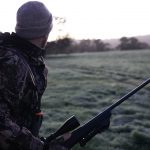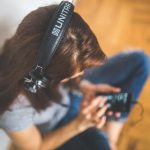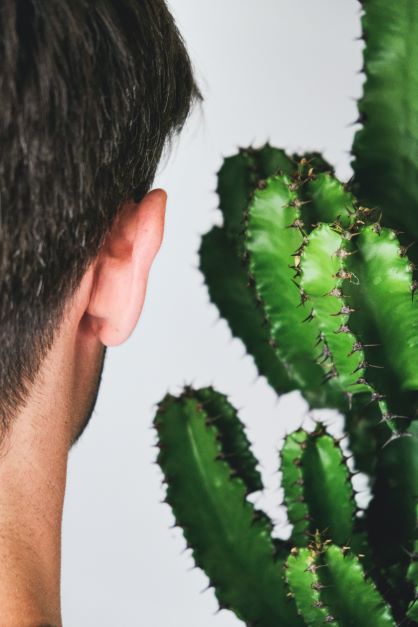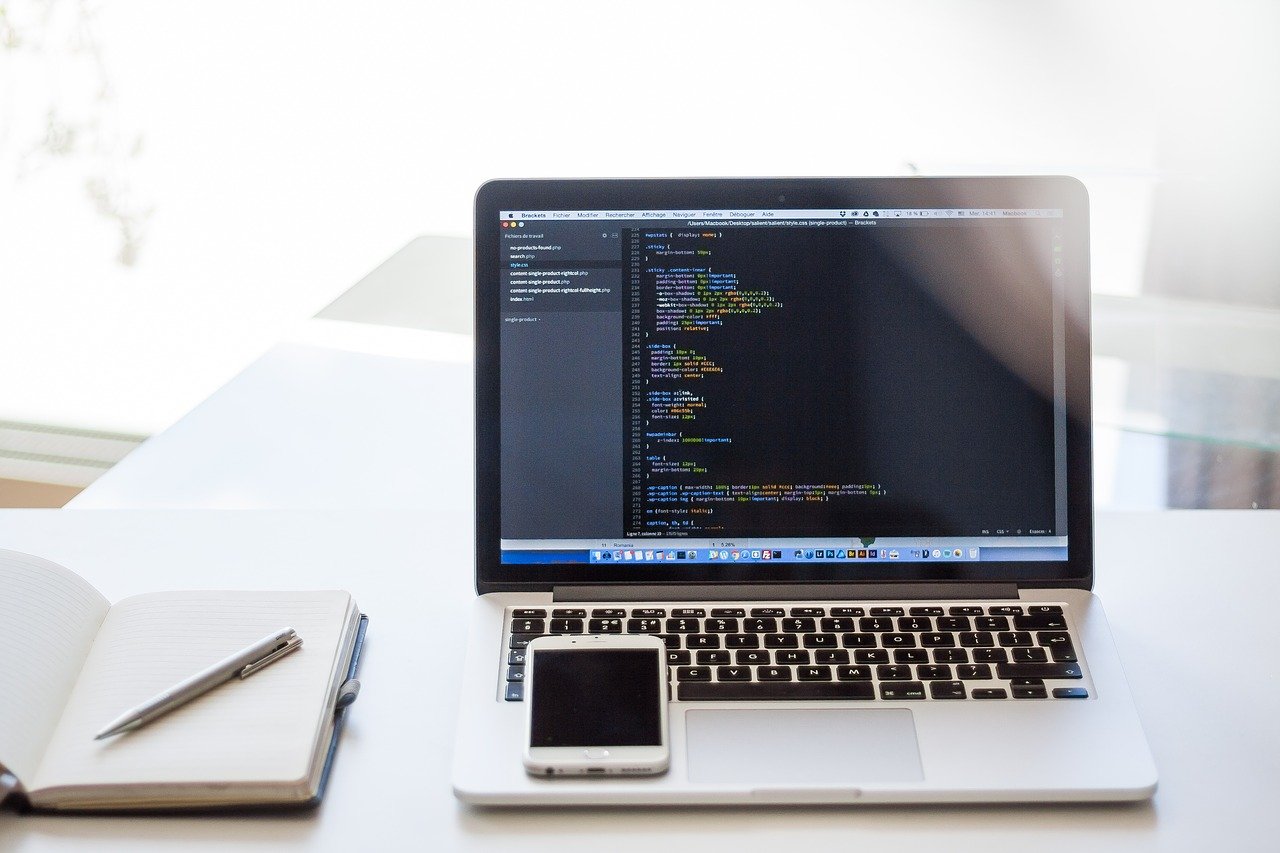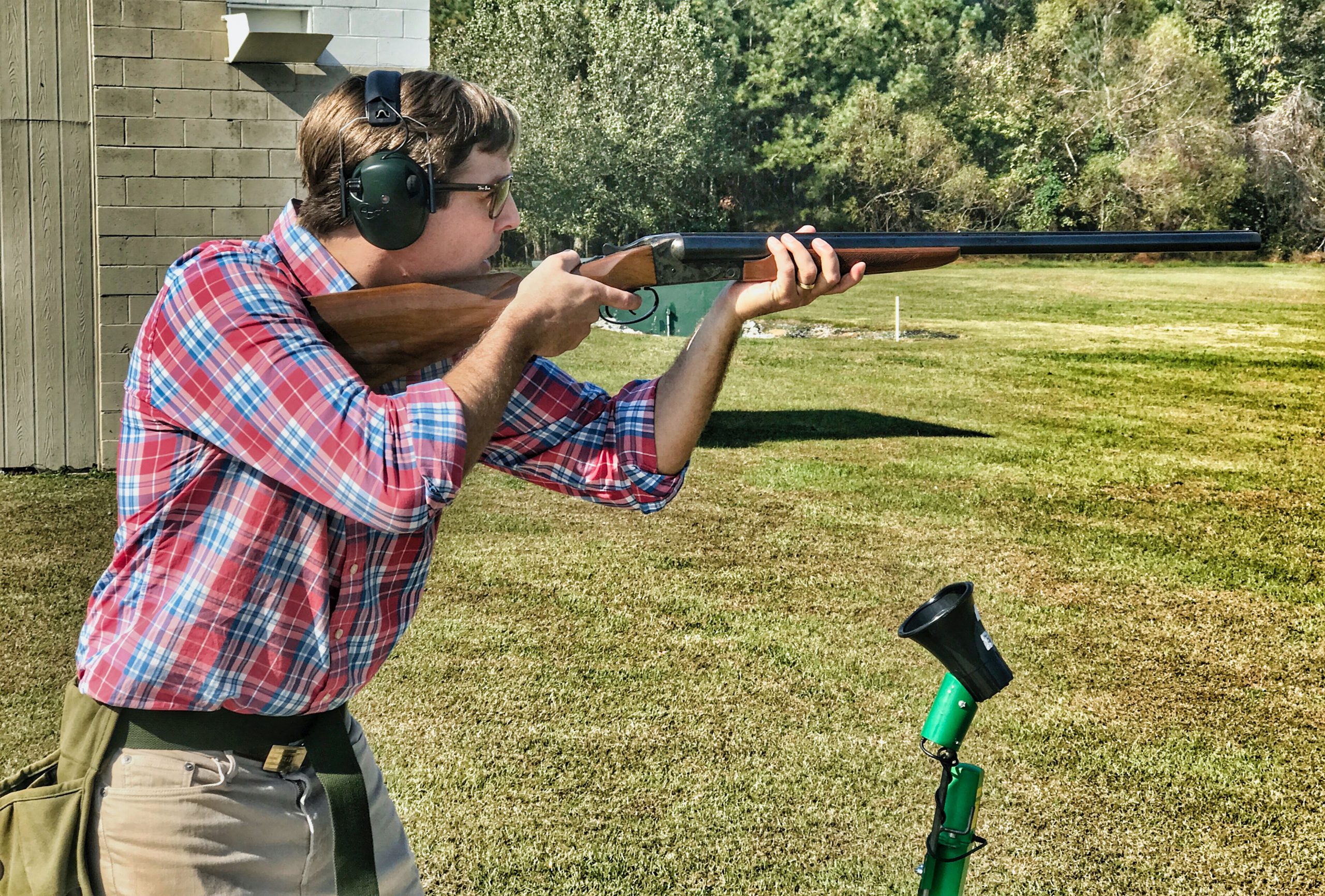
This article has been audited and reviewed by Dr. Ben Thompson, an audiologist and tinnitus expert. For more information about Dr. Thompson, click his name or read his bio below the article!
Hollywood may have caused some misunderstandings, but anyone who has held and fired one can attest to this: guns are loud. Without proper ear protection, the potential for permanent damage to your hearing is very likely. To prevent this, you should invest in the best shooting ear protection.
We’ll explore the connection between shooting and hearing loss, go over how to pick out a good pair of earplugs, and suggest some effective options to help keep your ears safe during your next session.
Contents
- 1 Why You Should Use Shooting Ear Protection
- 2 What If I Don’t Use Shooting Ear Protection?
- 3 What Should I Look For in Shooting Earplugs & Hearing Protection?
- 4 Does The Type Of Shooting Change Anything?
- 5 The Best Earplugs for Shooting Ear Protection – Our Recommendations
- 6 Hearing Amplification and Shooting?
Why You Should Use Shooting Ear Protection
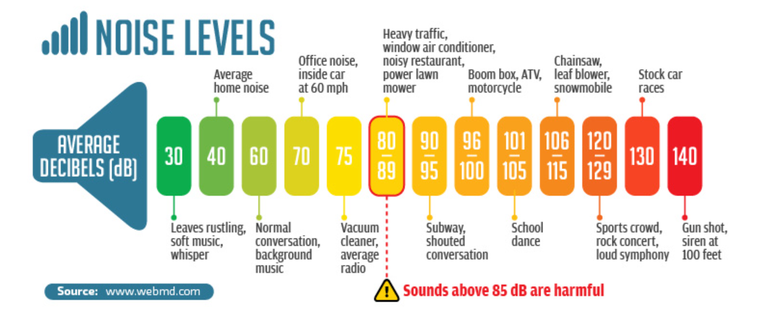
Sounds under 70 decibels (dB) are considered to be at a safe level for hearing. Anything over 85 dB is likely to cause some level of damage to the sensitive hair cells in your inner ear.
Concerningly, firearm noise can reach up to 140 dB ~ 175 dB. Of course, this will depend on the gun’s caliber and the shooting environment, but one thing’s for sure — without protection, this level of noise is going to take a serious toll on your ears. The National Institute for Occupational Safety and Health (NIOSH) even points out that exposure to one event at 140 dB SPL would constitute 100 percent of a person’s daily allowable noise exposure.
A 2000 study involving 1,500 Wisconsin men revealed that 95 percent of those who hunted and 38 percent of those who participated in target shooting had never worn ear protection during the year preceding the study. The study also demonstrated a link between shooting and high-frequency hearing loss (a reduction in your ability to hear high-frequency sounds).
Despite this, it’s clear that many people still aren’t using ear protection when shooting or standing nearby. Some have grown up shooting without ear protection, and when others around you aren’t using it either, it’s hard to make earplugs a habit.
What If I Don’t Use Shooting Ear Protection?
Exposure to firearms will very likely lead to noise-induced hearing loss. Noise-induced hearing loss is one of the biggest causes of hearing loss, affecting millions of Americans today. Unfortunately, the hearing loss caused by noise damage to the inner ear can’t be restored, as once hair cells are damaged they don’t repair, but die. This also means that noise damage is cumulative, and every little bit of harm that’s happening to your hearing is contributing to your overall level and rate of hearing loss.
But it’s not just repeated exposure to loud noise for long periods of time that causes damage. Very loud but short bursts of noise (just like gunshots) can cause irreversible hearing loss or tinnitus in just one blow.
Using shooting earplugs isn’t just important for those shooting, hearing protection is crucial for bystanders too. Even if you’re not the one shooting the gun, this doesn’t mean that you’re a safe enough distance away to not need earplugs. There’s a big difference between 70 dB (marking the threshold for safe hearing levels) and 140 dB, the lowest noise level the shot of a firearm is likely to create.
Luckily, choosing suitable ear protection can be easy.
What Should I Look For in Shooting Earplugs & Hearing Protection?
All hearing protection should come with a noise reduction rating (NRR) — a measurement indicating how effective the protection is. The NRR is also used to calculate the dB rating of sound as it passes through your ear protection (ie 5 NRR means 5 decibels of hearing protection). The higher your ear protection’s NRR, the safer your hearing will be. For reference, the highest NRR you can get is 33 which can considerably reduce the level of loud noise reaching your ears from the gunfire you’ll find on the shooting range.
When it comes to the type of hearing protection you want to wear, you have choices as well. Larger over-the-head earmuffs or smaller earplugs are both viable options which in the end will come down to personal preference.
In particular, when it comes to earplugs some people opt for custom-molded hearing protection. Their custom mold means they’ll fit snugly into your ear canal without moving or becoming loose. As the damage caused by shooting comes in the form of short but extremely loud bursts of sound, by the time you notice your earplugs have moved the noise and damage to your sensitive ear structures will have already occurred. Therefore not only does a custom mold provide a more comfortable fit, but also a tighter seal and safer experience.
Or, as the National Institute for Occupational Safety and Health recommends, both together! Wearing earplugs underneath earmuffs is an incredibly effective way to protect your ears against the incredibly loud sound created by gunfire.
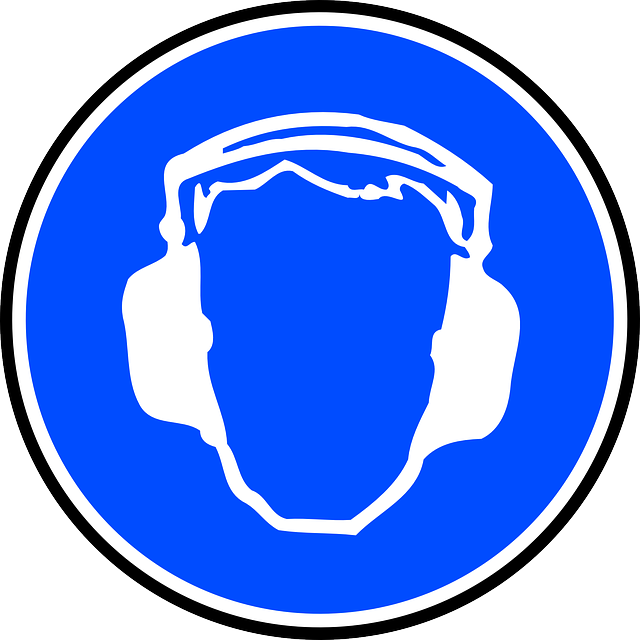
Does The Type Of Shooting Change Anything?
You could be using a handgun, rifle, or shotgun for bullseye shooting, field shooting, or clay target shooting — it doesn’t matter. Whenever you’re around a gun, you need to use ear protection.
The Best Earplugs for Shooting Ear Protection – Our Recommendations
If you’re shopping around for affordable custom-molded hearing aids, the brand Decibullz makes some of the best earplugs for shooting. They offer fitted earplugs with a short and simple set-up process that you can do yourself. You can simply boil some water and immerse the earpieces until they become pliable. After they’ve cooled for a bit, you can mold them to the shape of your ears for a great custom fit. Make sure to follow the safety instructions to prevent causing damage to your eardrum. They’re also re-moldable, which is handy if you make a mistake on your first try!
The EP4 Sonic Defenders Plus are made from soft, medical-grade polymer and have received great reviews for low decibel sounds (they have a lower NRR) and lower caliber firearms. These earplugs also have a retention ring to prevent slipping. However, they won’t provide the best protection when used with louder guns.
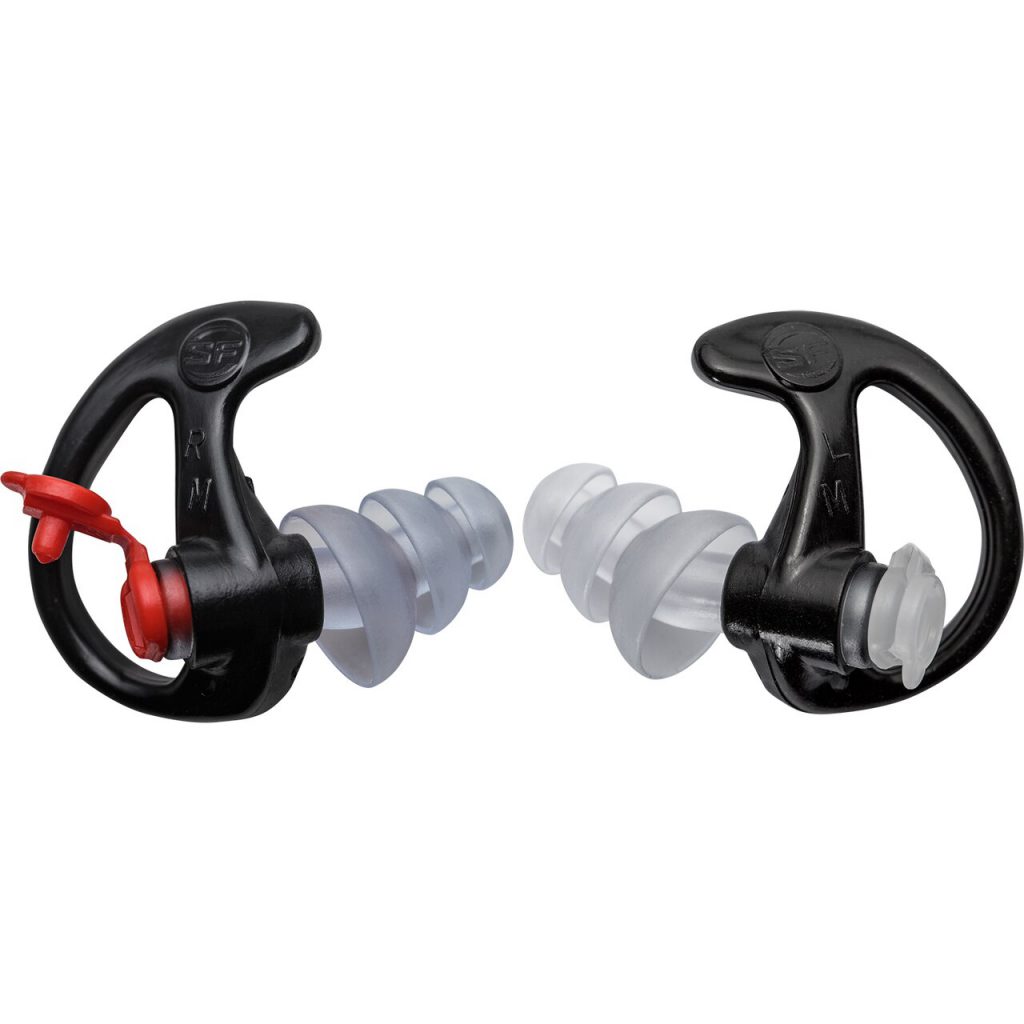
EP4 SONIC DEFENDERS® PLUS
Mack’s Shooters Ear Seals Ear Plugs are also a simple, effective option for protection against high-caliber firearms.
The most popular earmuffs on Amazon, Walker’s Game Ear Razor Slim Electronic Muff offer a 23dB NRR and sit at an impressive 4.8 star rating out of almost 8,500 reviews.
Hearing Amplification and Shooting?
While it is important to protect your ears when around gunfire, sometimes the opposite case exists as well. For those who need additional help hearing, the usage of ear protection might end up hindering their performance or enjoyment.
When hunting specifically, it’s worth keeping in mind how important your hearing is when you’re hunting. Any hunter will admit that you rely on this crucial sense just as much as you do on sight.
For hunters or shooters who need to both protect their hearing and give it a boost at the same time, take a look at our hearing aids for hunting article.
For more information on hearing loss, hearing devices, and all manner of hearing health and sound topics, see our other blog articles.
Article edited by Dr. Ben Thompson – Au.D. (Audiologist)

Dr. Ben Thompson is an audiologist and tinnitus expert. Dr. Thompson is the founder of PureTinnitus.com. He decided to specialize in tinnitus management because of his interests in mindfulness, music, and psychology. He completed his residency at the University of California at San Francisco (UCSF) and is a past board member of the California Academy of Audiology.
Via telehealth, Dr. Thompson provides tinnitus retraining therapy online. He hosts a YouTube channel, podcast, and tinnitus group coaching program to help individuals with hearing loss and tinnitus.
The information in this guide has been written using the following reliable sources:
www.decibullz.com, www.cdc.gov/

